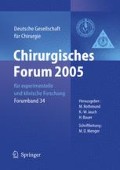Abstract
Adenomas are well established as precursors of colorectal cancer. In most cases the progression to malignancy is not a rapid process. However, in Hereditary Non-Polyposis Colorectal Carcinoma (HNPCC) an earlier onset of adenomas and a faster progression to cancer is well known. 122 known HNPCC patients were followed for five years to detect colorectal adenomas. The goal of the study was to determine whether microsatellite instability (MSI) can be identified at the premalignant stage. 36 patients were identified who had developed a total of 71 adenomas. The adenomas were analyzed for MSI and loss of mismatch repair (MMR) protein expression by immunohistochemistry.
In most cases, results of MSI analysis and immunohistochemistry of adenomas were identical to the corresponding carcinomas, demonstrating that MMR deficiency occurs very early in the neoplastic process. In addition, three adenomas that were MSS, demonstrated immunohistochemical loss of expression of the same MMR proteins as the corresponding carcinomas. However, immunohistochemical staining alone would have missed four adenomas with high MSI, which underlines the importance of using both screening methods.
Interestingly, seven adenomas out of 31 that were located more than 5 cm away from the carcinoma may have followed a MMR proficient pathway. These adenomas revealed an MSS (n = 6) or low MSI (n = 1) status and expressed all MMR proteins. 6 of these 7 adenomas occurred in patients who had other adenomas with the same molecular profile as the corresponding carcinomas. These findings indicate that these adenomas might indeed be sporadic adenomas or that very early stages of MMR deficient lesions may not yet display MSI-H and loss of MMR protein expression, the hallmarks of MMR deficiency. These results support the decision to exclude MSI testing of adenomas for HNPCC screening from the revised Bethesda guidelines.
Access this chapter
Tax calculation will be finalised at checkout
Purchases are for personal use only
Literatur
Boland CR, Thibodeau SN, Hamilton SR, Sidransky D, Eshleman JR, Burt RW, Meltzer SJ, Rodriguez-Bigas MA, Fodde R, Ranzani GN, Srivastava S (1998) A National Cancer Institute workshop on microsatellite instability for cancer detection and familial predisposition: development of international criteria for the determination of microsatellite instability in colorectal cancer. Cancer Res, 58:5248–5257
Heinmöller E, Renke B, Beyser K, Dietmaier W, Langner C, Rüschoff J (2001) Pitfalls in diagnostic molecular pathology-significance of sampling error. Virch Arch, 439:504–511
Lynch HT, Chapelle de la A (2003) Hereditary Colorectal Cancer. N Engl J Med, 348:919–932
Müller A, Giuffre G, Bocker Edmonston T, Mathiak M, Roggendorf B, Heinmöller E, Brodegger T, Tuccari G, Mangold E, Buettner R, Rüschoff J and the German HNPCC Consortium, German Cancer Aid (Deutsche Krebshilfe) (2004) Challenges and Pitfalls in HNPCC Screening by Microsatellite Analysis and Immunohistochemistry. J Mol Diag, 6:308–315
Umar A, Boland CR, Terdiman JP, Syngal S, Chapelle de la A, Rüschoff J, Fishel R, Lindor NM, Burgart LJ, Hamelin R, Hamilton SR, Hiatt RA, Jass J, Lindblom A, Lynch HT, Peltomaki P, Ramsey SD, Rodriguez-Bigas MA, Vasen HFA, Hawk ET, Barett JC, Freedman AN, Srivastava S (2004) Revised Bethesda guidelines for hereditary nonpolyposis colorectal cancer (lynch syndromes) and microsatellite instability. J of the National Cancer Institute, Vol 96,18:61–268
Author information
Authors and Affiliations
Editor information
Editors and Affiliations
Rights and permissions
Copyright information
© 2005 Springer Medizin Verlag Heidelberg
About this paper
Cite this paper
Müller-Dornieden, A., Beckmann, C., Edmonston, T.B., Fass, J., Becker, H., Rüschoff, J. (2005). Probleme der HNPCC-Diagnostik am Beispiel der molekularen Analyse von kolorektalen Adenomen — Ergebnisse einer Follow-up Studie. In: Rothmund, M., Jauch, KW., Bauer, H. (eds) Chirurgisches Forum 2005. Deutsche Gesellschaft für Chirurgie, vol 34. Springer, Berlin, Heidelberg. https://doi.org/10.1007/3-540-26560-0_11
Download citation
DOI: https://doi.org/10.1007/3-540-26560-0_11
Publisher Name: Springer, Berlin, Heidelberg
Print ISBN: 978-3-540-24888-0
Online ISBN: 978-3-540-26560-3
eBook Packages: Medicine (German Language)

